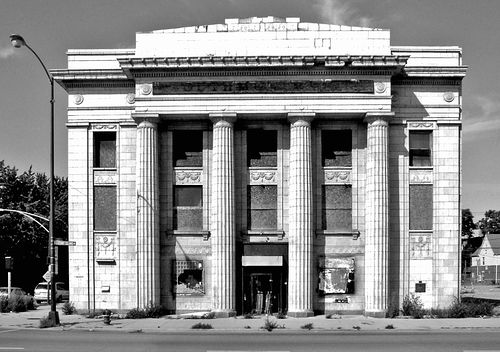 This one is for all lawyers, not just the personal injury folks. Because we all get those scam emails asking us to do some work for the out-of-country “client” who just needs this tiny bit of work done to collect a big fee. And some folks get taken, despite what they see as their best efforts to make sure they don’t.
This one is for all lawyers, not just the personal injury folks. Because we all get those scam emails asking us to do some work for the out-of-country “client” who just needs this tiny bit of work done to collect a big fee. And some folks get taken, despite what they see as their best efforts to make sure they don’t.
And this comes as a follow-up to a post a few months ago about a case from the Second Circuit, where a law firm was hustled by accepting a check and depositing it in its account. After the bank said the funds were available, it disbursed the funds and kept a portion for a legal fee. Then the bank called and said the original check was counterfeit, and by the way, “available” means something different to the bank than to everyone else. The law firm lost and, when the music stopped, didn’t have a chair to sit in.
Now comes a different twist on the same story out of a New York state appellate court, and the issue is whether the law firm’s malpractice liability carrier has to defend and indemnify the firm for getting suckered. These were the bare bones facts in Lombardi, Walsh v. American Guaranteee and Liability that came out of the Third Department a few days ago:
Plaintiff, a law firm, was contacted via e-mail by an individual purporting to be the chief executive officer of a Taiwanese corporation seeking legal assistance in collecting debts in North America. After the individual sent plaintiff a signed retainer agreement, plaintiff received a $384,700 check from a purported debtor of the corporation. Plaintiff opened an account at Berkshire Bank and deposited the check. At the request of the purported chief executive officer, plaintiff instructed Berkshire Bank to wire the value of the check, minus a legal fee for plaintiff, in two transfers to a third party in South Korea, who was allegedly a supplier of the Taiwanese corporation. After the funds were transferred, Berkshire Bank notified plaintiff that the check was counterfeit and plaintiff’s account was overdrawn.
The firm made a claim through its liability carrier and the carrier disclaimed. The firm settled with the bank and then brought action against its insurance company.
The lower court granted summary judgment to the insurance company under the theory that legal services were not being rendered.
Not so fast, said the appellate court. This did take place in the rendering of legal services, even if turned out to be fraudulent. The Court said that:
Regardless of whether the imposter qualified as a “client,” the policy does not require an actual “client”; the policy only requires that plaintiff “render Legal Services for others,” and the imposter fell within that broad category.
The carrier is on the hook both to defend the firm. Since the settlement was confidential, the case was sent back to the lower court for further proceedings.
But, this is the kicker, and the reason I follow up today from that post a few months back out of the Second Circuit. There is this comment in the footnotes that should stand as a warning to all lawyers about what the bank really means when it says the funds are available:
Plaintiff had instructed Berkshire Bank to wait until the check “cleared,” which it did, before wiring funds. Unfortunately, plaintiff did not understand that a bank may be required to make funds deposited by check available for the account holder to use even if the funds have not been finally collected by the bank (see 12 CFR 229.10 [c]). If the bank later determines that the check does not constitute good funds and cannot be finally collected, the bank may require repayment of those funds that had been made available to the account holder.
So when a bank says the funds are available, they might retract that statement in the future leaving the lawyer holding the bag. Unless, of course, you have insurance.
(hat tip, Jay Breakstone, The Nigerian Shuffle Strikes Again)
Without knowing the law or reading the opinion, I’m with the trial court.
Pingback: NY Top Court: Law Firm Burned in Check Scam Can’t Blame Bank, as Bank Not Liable for Clearing Bogus Check Because “Cleared” Is Ambigious – New York Personal Injury Law Blog